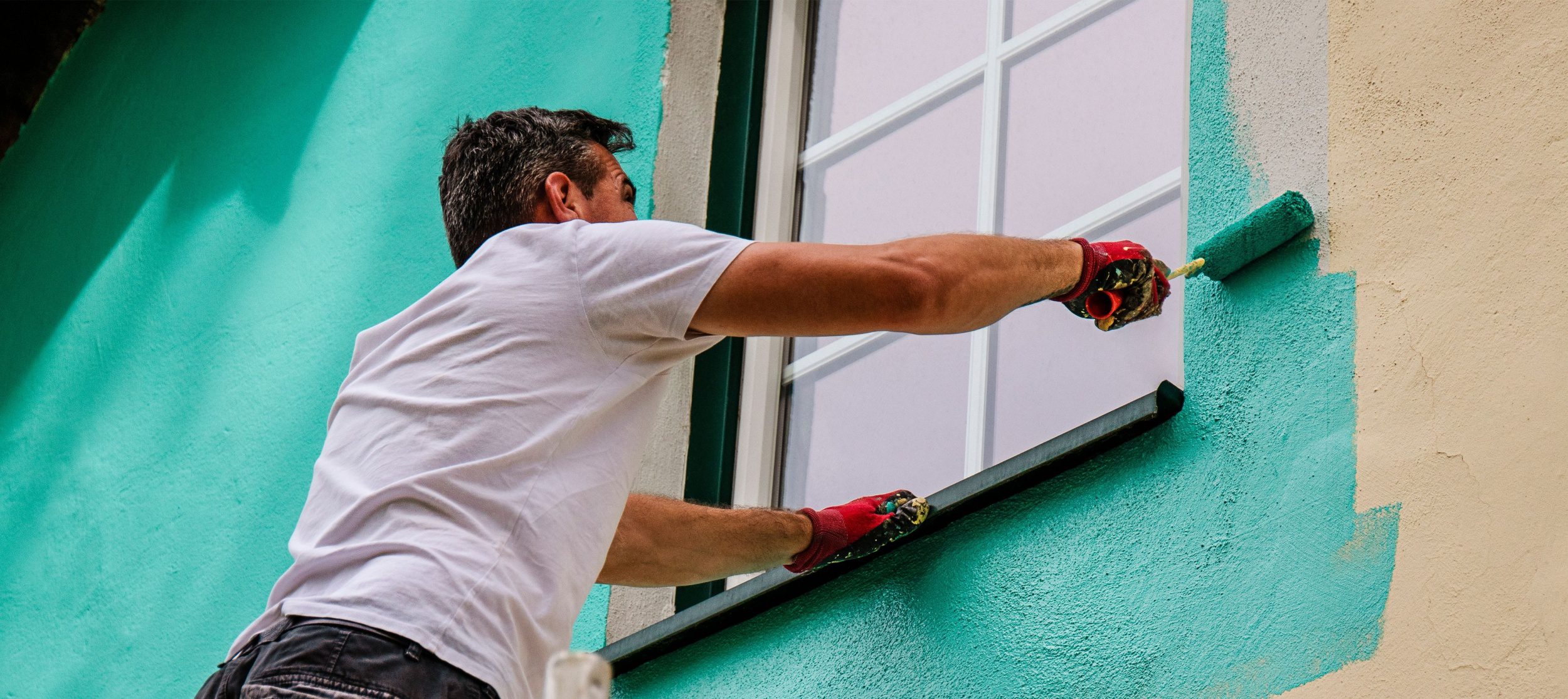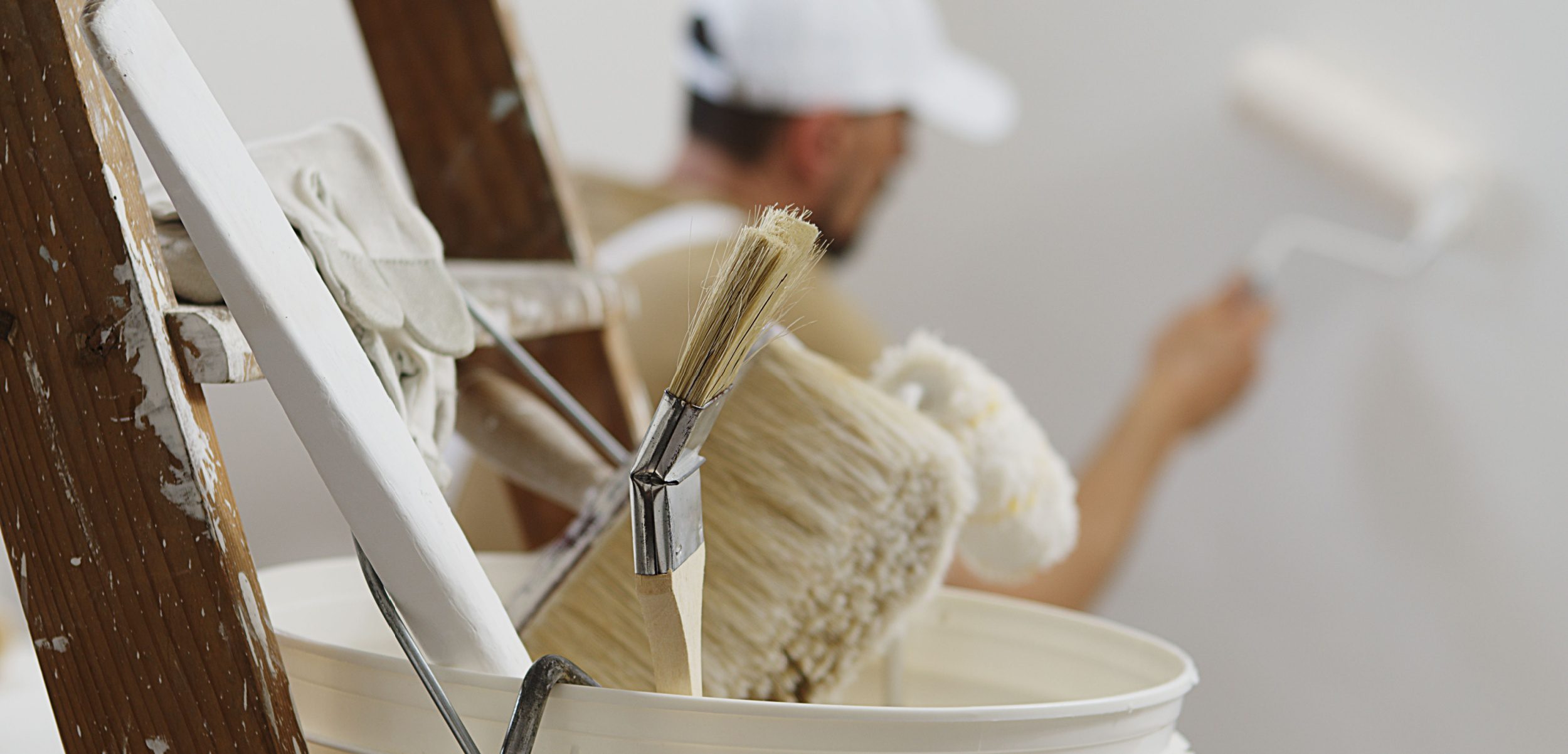Have you ever wondered what it takes to transform a blank wall into a work of art? The process of becoming a painter and decorator is not just about wielding a brush; it involves a blend of creativity, skill, and technical knowledge. Therefore, understanding the path to this profession is essential for anyone interested in pursuing it.
What is the Role of a Painter and Decorator?
Painters and decorators are responsible for applying paint, wallpaper, and other finishes to various surfaces, both inside and outside buildings. As a result, they play a vital role in enhancing the aesthetic appeal of spaces. However, the job is not just about painting walls; it involves various tasks that require precision and attention to detail.

Key Responsibilities of a Painter and Decorator:
- Surface Preparation: Before applying paint or wallpaper, surfaces must be prepared. This involves cleaning, sanding, and repairing any cracks or holes.
- Painting and Decorating: Using brushes, rollers, or spray equipment, painters apply paint or other materials like stains and varnishes. They may also measure, cut, and apply wallpaper.
- Customer Interaction: Advising clients on colour choices and finishes is often part of the job. Thus, good communication skills are essential.
- Safety Measures: Painters and decorators must follow safety protocols to prevent accidents, especially when working at heights or with hazardous materials.
How to Become a Painter and Decorator?
Becoming a painter and decorator requires various skills and qualities. Moreover, you will need some level of education, experience, and understanding of health and safety. So, here’s a breakdown of these factors:
Step 1: Educational Pathways
While formal education is not always required, it can be beneficial. Therefore, aspiring painters and decorators might consider the following options:
- Apprenticeships: These provide hands-on experience and are a common route into the profession. Participants learn on the job while earning a wage.
- Vocational Courses: Many colleges offer courses in painting and decorating, covering essential techniques and safety practices.
- On-the-Job Training: Some individuals start as assistants and learn through practical experience.
Step 2: Gaining Experience
Experience is invaluable in this field. As a result, here are some ways to gain the necessary expertise:
- Work with Professionals: Learning from experienced painters and decorators can provide insights that are not available in textbooks.
- Volunteer for Projects: Offer your skills for community projects or family and friends. This not only builds your portfolio but also your confidence.
- Practice Regularly: The more you paint and decorate, the more proficient you become.
Step 3: Building a Portfolio
A strong portfolio is crucial for showcasing your skills to potential clients or employers. Therefore, include a variety of projects that highlight different techniques and styles. High-quality photographs and detailed descriptions of each project can make a significant difference.

Step 4: Understanding Health and Safety
Safety is paramount in the painting and decorating industry. Thus, understanding and adhering to health and safety regulations is essential. This includes:
- Using protective gear, such as masks and gloves.
- Ensuring proper ventilation when working with fumes.
- Being aware of ladder safety and other equipment handling procedures.
Skills and Qualities Needed to Become a Painter and Decorator
To be proficient in this field, certain skills and qualities are necessary. Thus, let’s explore what makes a successful painter and decorator:
- Attention to Detail: Precision is key in ensuring that the final look is flawless.
- Creativity: A good sense of colour and design helps in creating appealing spaces.
- Physical Stamina: The job often requires standing for long periods and handling heavy equipment.
- Problem-Solving Skills: Unexpected challenges can arise, and quick thinking is essential.
- Communication Skills: Understanding client needs and collaborating with other professionals is vital.
Career Prospects
Once you have the necessary skills and experience, various career paths are available. You could work for a construction company, join a painting contractor, or even start your own business. Moreover, with experience, opportunities to specialise in areas like historical restoration or interior design may arise.
Potential Earnings of a Painter and Decorator
The earning potential for painters and decorators varies based on experience, location, and whether you are self-employed. In the UK, starting salaries are around £17,000, with experienced professionals earning up to £32,000 or more. Self-employed decorators can set their own rates, potentially increasing their income.
How To Start Your Own Business?
For those interested in self-employment, starting a painting and decorating business can be a rewarding venture. However, it requires careful planning and consideration. Here are some steps to consider:
- Create a Business Plan: Outline your goals, target market, and financial projections.
- Register Your Business: Ensure that you comply with local regulations and obtain any necessary licenses.
- Market Your Services: Use online platforms, local advertising, and word-of-mouth to reach potential clients.
- Set Competitive Pricing: Research the market to set fair prices that reflect your skills and experience.
Challenges and Rewards
Like any profession, painting and decorating come with its challenges. However, the rewards can be significant. The satisfaction of seeing a project through from start to finish and the appreciation from clients can be highly fulfilling. Moreover, the demand for skilled painters and decorators remains strong, providing job security and opportunities for growth.
Final Thoughts
Understanding how to become a painter and decorator involves more than just learning how to apply paint. It requires a combination of skills, experience, and a willingness to continually learn and adapt. Whether you choose to work for a company or start your own business, the path can be both challenging and rewarding. Therefore, if you are passionate about transforming spaces and have the dedication to develop your craft, this career could be the perfect fit for you.




